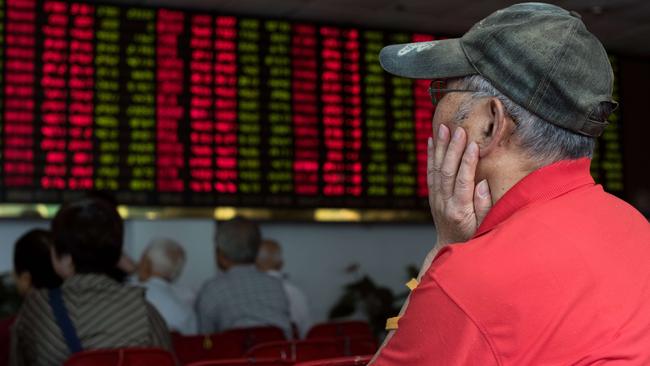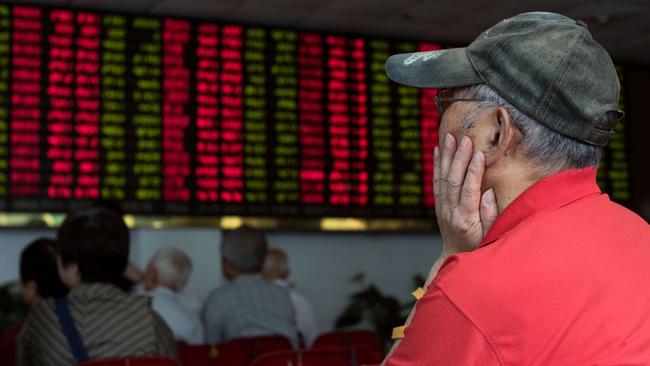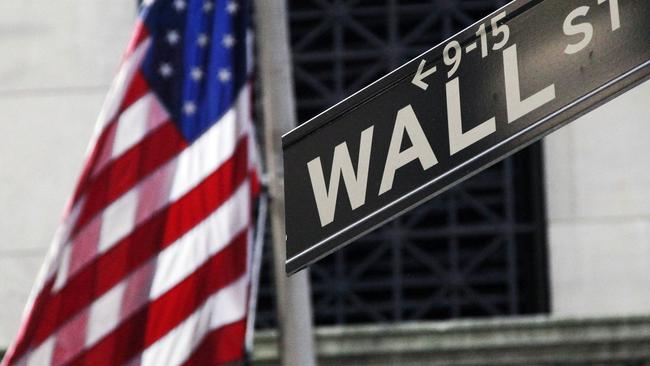China fears spur global sell-off
THE stock market is bracing for heavy falls today after Wall Street had its worst day in 18 months, driven lower by another slump in Chinese shares.

THE AUSTRALIAN stock market is bracing for heavy falls today after the US stock market endured its worst performance in 18 months on Thursday, driven lower by another slump in Chinese shares and heavy selling by technical traders.
The global rout started in China, where sharp declines in energy and property stocks pushed the Shanghai Composite down more than 3 per cent. That selling soon spread to European and U.S. markets, where the Standard & Poor’s 500 index moved further below a closely watched trading level.
Investors, facing screens full of red, retreated to their usual places of safety: bonds, gold and cash.
“The emerging markets really got slammed overnight and that quickly spread to the rest of the world,” said J.J. Kinahan, chief strategist at TD Ameritrade.
The Dow Jones industrial average plunged 358.04 points, or 2.1 per cent, to 16,990.69. The S&P 500 dropped 43.88 points, or 2.1 per cent, to 2,035.73 and the Nasdaq composite lost 141.56 points, or 2.8 per cent, to 4,877.49.

It was the biggest percentage decline for the Dow and S&P 500 since February 2014. The blue chip index is now at its lowest level since October 2014.
Buyers of stocks were few and far between. Selling outweighed buying by a ratio of more than eight to one in heavy trading. Still, even with the sell-off, the S&P 500 was down just 4.5 per cent from its record close of 2,130.82 on May 21.
As the selling picked up Thursday, investors moved money to traditional havens in times of uncertainty.
Gold rose $25.30, or 2.2 per cent, to $1,153.20 an ounce, the metal’s best day since April. Demand for ultra-safe U.S.
government bonds rose, pulling down the yield on the benchmark 10-year Treasury note to 2.07 per cent from 2.13 late Wednesday. The 10-year’s yield stood at 2.19 per cent only two days before, and its decline since then represents a major decline.
Worries over China, the world’s second-largest economy, spurred Thursday’s losses. The Shanghai Composite Index dropped 3.4 per cent. Chinese shares have had a wild ride this week and that has raised questions about Beijing’s ability to stabilise the market and the devaluation of that nation’s currency.
The move has caused other countries to devalue their own currencies, notably oil-rich Kazakhstan and the manufacturing hub of Vietnam.
Strategists and traders, noting the lack of major U.S. economic news on Thursday, said the drop in stocks was also likely tied to programmed selling, which came after the S&P 500 moved below one of its most closely watched indicators, a 200-day moving average.
While many investors buy and sell stocks based on a company’s business outlook, there is a different class of trader who relies on such technical indicators to make investment decisions.
“I see this drop as likely because we crossed the 200-day moving average, and that’s causing us to have further selling,” said Scott Wren, chief global equity strategist at the Wells Fargo Investment Institute.

Media stocks were hit particularly hard. Walt Disney shares fell $6.43, or 6 per cent, to $100.02. Analysts are concerned that viewers are moving away from cable, which could hurt lucrative Disney properties such as ESPN.
Viacom, owner of CBS, fell 6 per cent as well while Twenty-First Century Fox slipped 4 per cent.
The year’s biggest winners also were hit hard, possibly a sign that investors feel the seven-year bull market for stocks might be slowing down. Netflix, which is up about 130 per cent since January, fell 8 per cent. Gilead Sciences dipped 3 per cent and Google declined 2 per cent.
The price of benchmark U.S. oil rose slightly but remains near its low point of March 2009. U.S. crude rose 34 cents to $41.14 in New York. Brent crude, a benchmark for international oils used by many U.S. refineries, fell 54 cents to $46.62 in London.
In other futures trading, wholesale gasoline fell 2.4 cents to close at $1.535 a gallon. Heating oil fell 2.2 cents to close at $1.496 a gallon. Natural gas rose 3.9 cents to close at $2.755 per 1,000 cubic feet.
In metals, silver rose 34 cents to $15.52 an ounce and copper rose 4 cents to $2.32 a pound.



